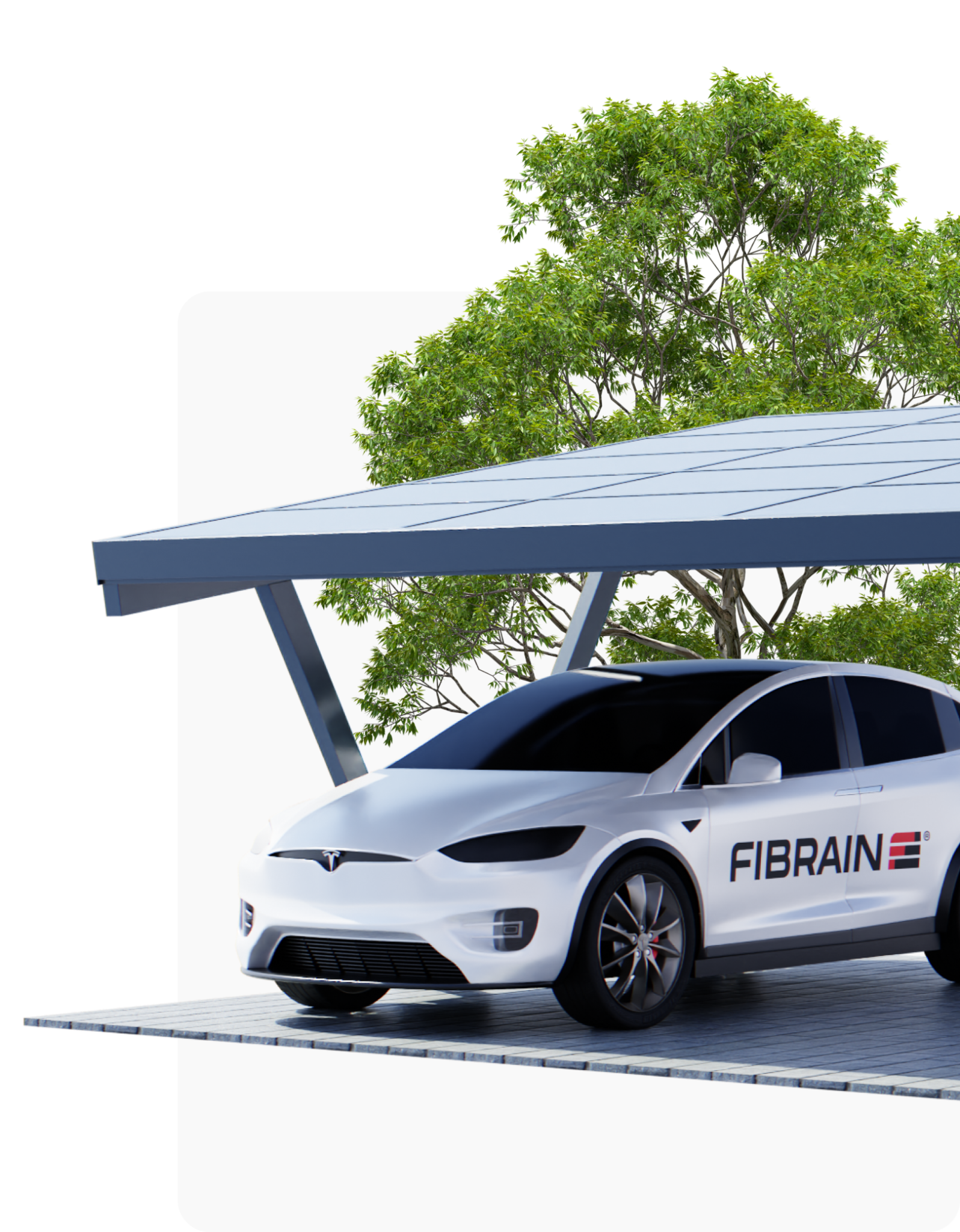Less energy consumption
The demand for electricity, especially in the economy, is constantly growing. Photovoltaic cells use solar energy to produce electricity. Companies that invest in this type of installation significantly reduce their power consumption from the grid, so fossil fuel-based power plants do not have to produce increasing amounts of energy.
1000 kWh
from photovoltaic
=
reduction
812 kg
CO2 annually
No harmful emissions
Solar energy generation does not involve the emission of harmful substances into the atmosphere. Each 1000 kWh of energy obtained from photovoltaics is a reduction in carbon dioxide emissions of about 812 kg per year. So the more photovoltaic installations there are in the world, the better the air quality. Photovoltaic panels also help to reduce emissions of carbon and nitrogen oxides or sulfur dioxide. The soil is also not polluted.
Photovoltaic panels also mean no production of solid waste, which is associated with the extraction of energy from traditional sources.
What is the carbon footprint of PV panels?
It is estimated that when 1 kWh of energy is produced with a solar installation, about 50 grams of carbon dioxide are emitted into the atmosphere. In contrast, traditional energy sources emit thousands of kilograms per year! So with photovoltaics, you can effectively reduce your company’s carbon footprint. For large companies, the positive environmental effect will be very pronounced.
Safety for the flora and fauna
Easy maintenance and durability
Photovoltaic panels - they last a very long time (even more than 30 years) and do not require complicated maintenance. Distilled water is enough to clean the cells. The disposal of photovoltaic panels themselves is also environmentally friendly - most components of the system can be recycled, recovering more than 90% of raw materials. Conventional methods of energy production require relatively regular replacement of components, thus generating a lot of environmentally unfriendly waste as well as increasing the need to manufacture new parts.
Renewable resources
Solar energy is a renewable energy. The sun is a source that will probably never run out - you will be able to use it for hundreds of years. Fossil fuels, on the other hand, are limited, and by extracting them, we further damage the planet. A side effect of producing electricity using conventional methods is the generation of hazardous waste, which requires proper disposal. With photovoltaics, much less of this type of waste is generated, as well as various hazardous chemicals. Photovoltaics is an efficient method of obtaining green energy that everyone can access.
Safety for the flora and fauna
A well-planned and installed system will not adversely affect nature - plants, animals or soil. Once the entire system is removed from the area in question, the land can be used without worry - the soil will retain its quality. The operation of the solar panels themselves also does not emit any annoying sounds.
Legal requirements
Climate package ”Fit for 55”
The EU’s goal is to reduce greenhouse gas (GHG) emissions by 55% by 2030 and achieve climate neutrality by 2050. The legislative package also includes an update to the EU’s Renewable Energy Directive to increase the share of RES in the EU’s energy mix from the current target of 32% by 2030. In September 2023. Parliament voted an agreement with the Council setting a new target of 42.5% of energy from renewable sources by 2030.
Non-financial reporting obligation
Non-financial reporting obligations under Directive (EU) 2022/2464 of the European Parliament and of the Council of December 14, 2022 amending Regulation (EU) No. 537/2014, Directive 2004/109/EC, Directive 2006/43/EC and Directive 2013/34/EU with regard to corporate sustainability reporting.
ESG reports
ESG (environmental, social, corporate governance) reports will begin to function from January 1, 2024. Listed companies with more than 500 employees will have to report in 2025. In 2026, all large companies will have to report in 2025, and from January 1, 2026 (reporting in 2027), small and medium-sized listed companies will have to report. Proper management of environmental, social and corporate governance issues has many benefits for companies. ESG activities can define the financial success of companies, and in the medium and long term will contribute to changing the nature of services and products and ways of doing business. Increasingly, investors are paying attention to them.
Reporting on the amount of carbon footprint
Under the same CSRD, companies are also required to report the amount of their carbon footprint. Starting as early as 2024, all large companies and those on the stock market will have to file such a report.


